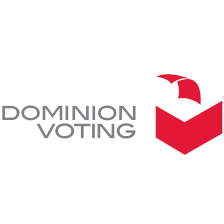I was going to do an article about electronic voting machines and who owns or uses what. I gave up, but here are my notes. They create a timeline of the ownership, development, buy-outs, and the communist and socialist countries involved make it hard to comprehend.
Related: I Assume “The Windham Scandal” Dominion Voting Machines Were Tested?
I am left with this understanding. See if this makes sense.
I can best describe who owns, controls, audits, sells, creates electronic voting machines with one simple, possible scenario.
In 1989, all the people involved in creating electronic voting machines got together in a foreign country, in a cheap motel, and had an orgy. Now, no one can figure out whose children belong to who.
Go ahead. Try and figure it out.
I hope one of these entities does sue some news outlet or person, and discovery is allowed. Any news agency worth its salt would be loaded with information about how our elections have been stolen for decades.
Have at it.
And remember. Most of these companies hire professional liars to explain their history.
Begin – The Accuvote OS.
1989
“In 1989, Unisys began marketing the ES-2000, originally developed by North American Professional Technologies, a subsidiary of Macrotrends International Ventures Inc. of Vancouver earlier in the 80s.”
1990
“Already by 1990, Unisys was selling the ES-2000 under the trade-name Accu-Vote.”
1991
“In late 1991, NAPT merged with Macrotrends to form Global Election Systems Inc.”
1990-2000
“Through the decade of the 1990s, Global would grow to become a major force in the election equipment marketplace, largely on the strength of the AccuVote ES-2000.”
2002
“In 2002, Diebold Inc., a well-established manufacturer of bank vaults, automatic teller machines, and other security-related products, bought Global to create Diebold Election Systems Inc. Global and Diebold continued to make the AccuVote ES-2000, although the name changed to the Accuvote OS, standing for Optical Scan, to distinguish it from the AccuVote TS, the touch-screen voting system that Global acquired with the purchase of I-Mark Systems.”
2006
“In 2006, Diebold re-branded their election services department as Premier Election Solution, and Premier purchased in 2009 by Election Systems and Software (ES&S) and was subsequently sold to Dominion Voting following a 2010 antitrust settlement.”
The anti-trust settlement: Monday, March 8, 2010
“WASHINGTON — The Department of Justice announced today that it will require Election Systems & Software (ES&S) to divest voting equipment systems assets it purchased in September 2009 from Premier Election Solutions Inc. in order to restore competition. … ”
Smartmatic: NOVEMBER 1, 2006:
“Following news reports last week alleging a connection between the Smartmatic Corp. and Venezuelan President Hugo Chavez, Sequoia Voting Systems Inc. and its parent the Smartmatic Corp, on Sunday announced that the companies have voluntarily submitted a notice to the U.S. Committee on Foreign Investment in the United States (CFIUS). The companies filed voluntarily in order to allow the U.S. government to review Smartmatic’s acquisition of Sequoia.”
“No foreign government or entity — including Venezuela — has ever held an ownership stake in Smartmatic, and we have voluntarily filed with CFIUS to put to rest the baseless but persistent rumors about our ownership,” said Antonio Mugica, Chief Executive Officer, Smartmatic.
The firm said it is owned primarily by three entrepreneurs: Antonio Mugica, a dual-Spanish-Venezuelan national (78.8 percent); Alfredo Anzola (3.87 percent); and Roger Pinate (8.47 percent). The other main investor is Jorge Massa (5.97 percent), a French-Venezuelan businessman. Smartmatic employees and friends and family own the remainder of the firm (2.89 percent).”
Sequoia Voting Systems was a California-based company that is one of the largest providers of electronic voting systems in the U.S., having offices in Oakland, Denver, and New York City. Some of its major competitors were Premier Election Solutions (formerly Diebold Election Systems) and Election Systems & Software.
Certain assets were acquired by the Canadian company Dominion Voting Systems on June 4, 2010. At the time, it had contracts for 300 jurisdictions in 16 states through its BPS, WinEDS, Edge, Edge2, Advantage, Insight, InsightPlus, and 400C systems.[1]
On June 4, 2010, Dominion Voting Systems, a Canadian company engaged in manufacturing electronic voting hardware and optical scanners, acquired all physical and intellectual assets of Sequoia Voting Systems and retained technical and sales staff.
In Feb. 2014, Sequoia filed a bankruptcy petition under Chapter 11 of the bankruptcy code.[2]
